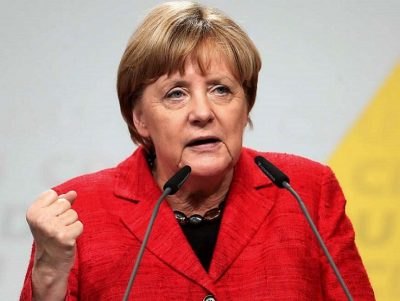Angela Merkel’s Pragmatism Bridged the Divide Between East and West

All Global Research articles can be read in 51 languages by activating the “Translate Website” drop down menu on the top banner of our home page (Desktop version).
Visit and follow us on Instagram at @crg_globalresearch.
***
Few, if any, world leaders will have a verb in their language named after them. Angela Merkel is an exception to this. ‘Merkeln’ in German youth vernacular, coined around a decade ago, means, according to the German dictionary publisher Langenscheidt,”to do nothing, make no decisions, issue no statements.”
Merkel’s reticence when it came to decision-making came to be a feature of her 16-year rule. For this she received criticism from many quarters, with journalists now assessing her legacy as one which although stable, was devoid of any really groundbreaking developments.
On a positive note, Merkel effectively steered Germany through various crises: the financial crash of 2008 and the economic problems which ensued; the exodus of refugees fleeing war-torn Syria in 2015 and the recent Covid pandemic. But the country is still lagging behind when it comes to technological innovation and digitalisation, with Merkel famously referring to the internet once as ‘uncharted territory’, for which she was ridiculed.
The reality is that Germany in the 21st century isn’t quite up to speed in the information age, with schools crying out for modern computers and health authorities still relying on fax machines instead of email. Unlike neighbouring European countries many council services are still not available online. In fact, an EU report this year ranked Germany 21st out of the bloc’s 27 member countries (plus the UK) for offering web online services to its citizens. The problem was highlighted during the Covid pandemic, as many schools were simply not set up for remote learning.
While Merkel’s careful approach may have generated criticism domestically, it proved to be a winning strategy in the field of geopolitics. The ultimate pragmatist, she was an expert at the art of diplomacy and had an irrefutable talent for maintaining productive working relationships with her global partners. This has been particularly evident in her ability to manage relations with both East and West; with the US but also with China and Russia. She visited China no less than 12 times during her tenure, more than any other European leader, and placed great importance on Sino-German relations, no doubt because of the interest German car manufacturers had in the Chinese market, which makes up around 38% of their global sales.
This pragmatism ensured that Germany was a country one could do business with; enabling Merkel to pursue her Nord Stream 2 project with Russia to bring gas straight to Germany (in fact to her home constituency). Despite considerable pressure from the United States to drop the scheme right up until its completion last month, Merkel was resolute in her determination that the pipeline should be built. In fact, throughout the highs and lows of the West’s relationship with Russia, Germany, unlike many of her western allies, kept diplomatic channels open, ensuring that dialogue would continue to take place. She always had a good working relationship with Vladimir Putin, with the two having more in common than other world leaders, both speaking German and having lived in East Germany.
Merkel and Putin, despite their differences on some issues, have a similar approach to international relations in that they are realists, and are principally concerned with the national interest. As Niall Ferguson, a historian from Stanford University has commented ‘Angela Merkel more than most western leaders was impressed by Putin, and accepted the logic of Putin’s argument that he was a source of energy that Europe could not do without.’
This refusal to take a harder line on Russia was of course, condemned by the US, but Merkel was not one to be pushed around, particularly after the phone-tapping scandal of 2013 which greatly undermined her trust in the US leadership. When it turned out that the NSA, under Barack Obama’s watch, had been monitoring Merkel’s mobile phone, it was clear that the Chancellor was not amused, stating that spying on one’s friends was ‘unacceptable’. Although she kept emotions out of politics, she was undoubtedly perturbed by the incident, and pursued a UN general assembly resolution calling for the right to privacy on the internet together with the then Brazilian leader Dilma Rouseff, whose country had also been targeted by the NSA.
With all these leadership skills of crisis management and diplomacy at her disposal, Merkel leaves behind her a large void to be filled. Whatever awaits Germany will likely be a period less stable than before, and less certain, with the new coalition government. We are entering a period of deeper divisions between East and West; will ‘Merkel’s successor’ be able to bridge that divide as she did? Or will he join western allies in pursuing a harder line towards China and Russia. One thing is for sure: Germany’s energy future is much more secure now with the Nord Stream 2 project, something that Germans only have Merkel to thank.
*
Note to readers: Please click the share buttons above or below. Follow us on Instagram, @crg_globalresearch. Forward this article to your email lists. Crosspost on your blog site, internet forums. etc.
Johanna Ross is a journalist based in Edinburgh, Scotland. You can follow the author on Twitter.

